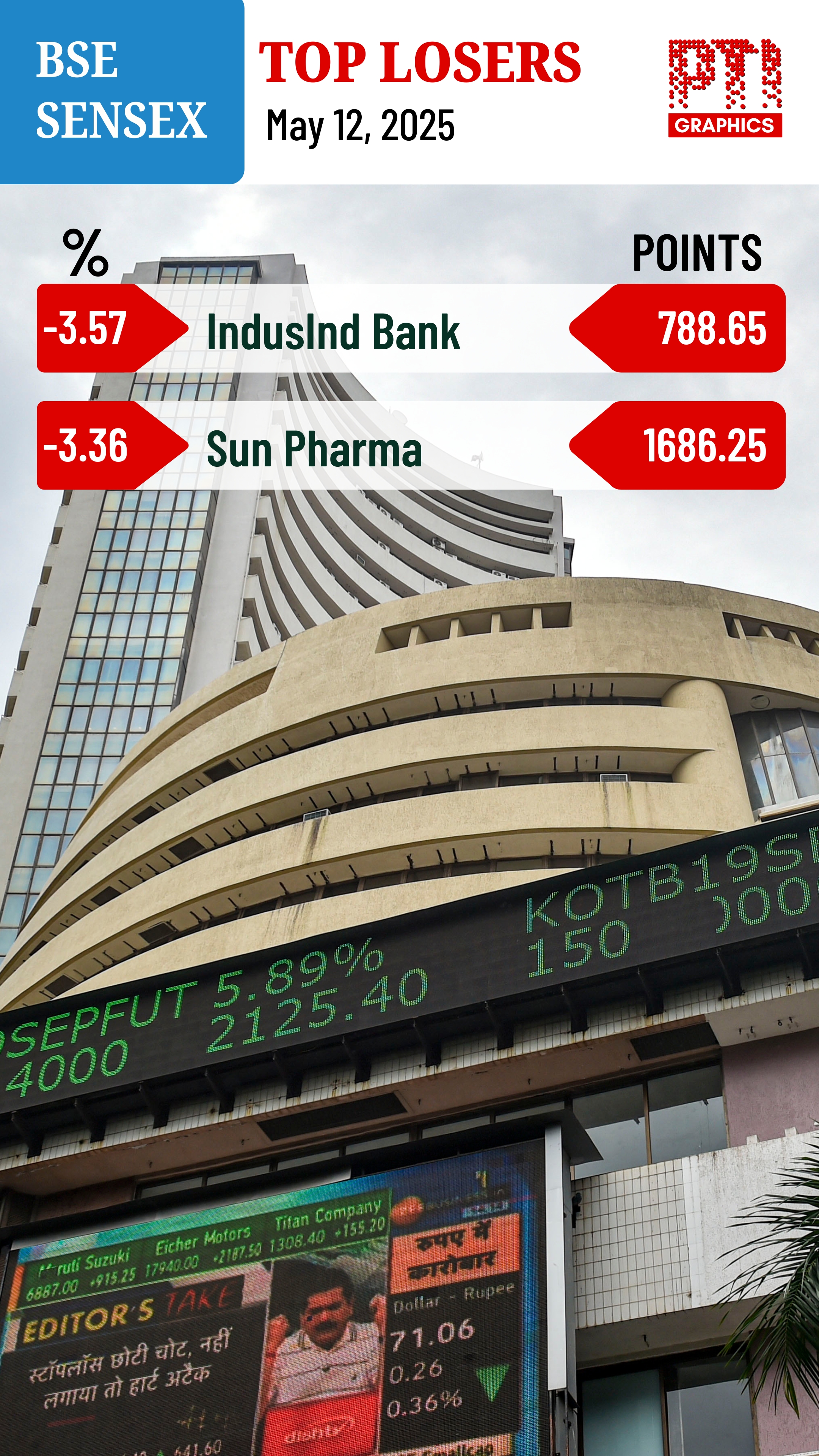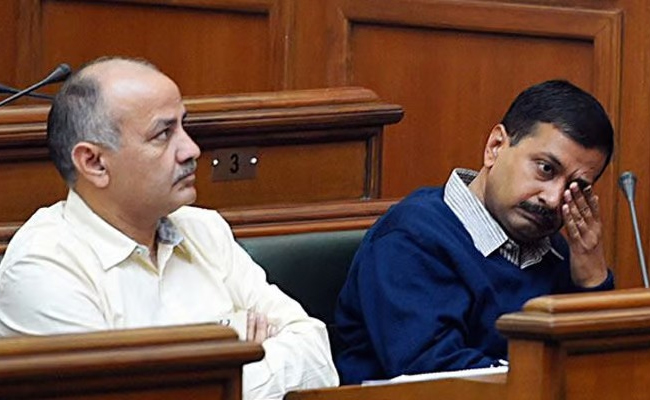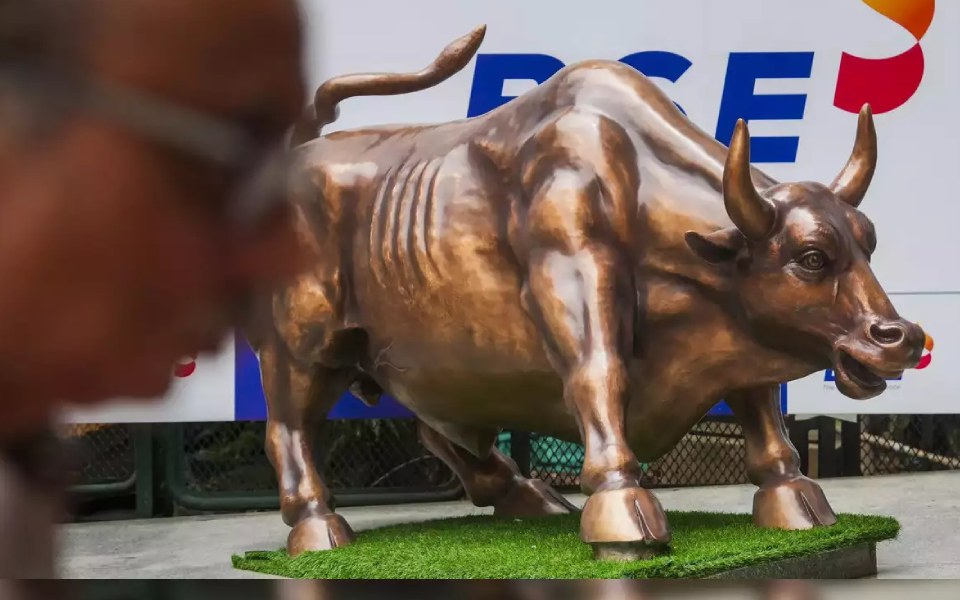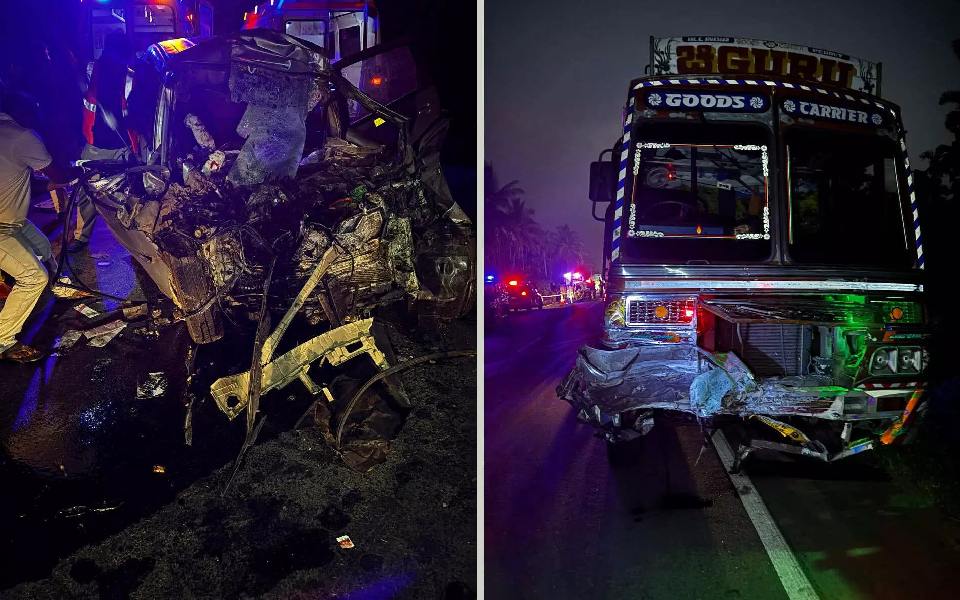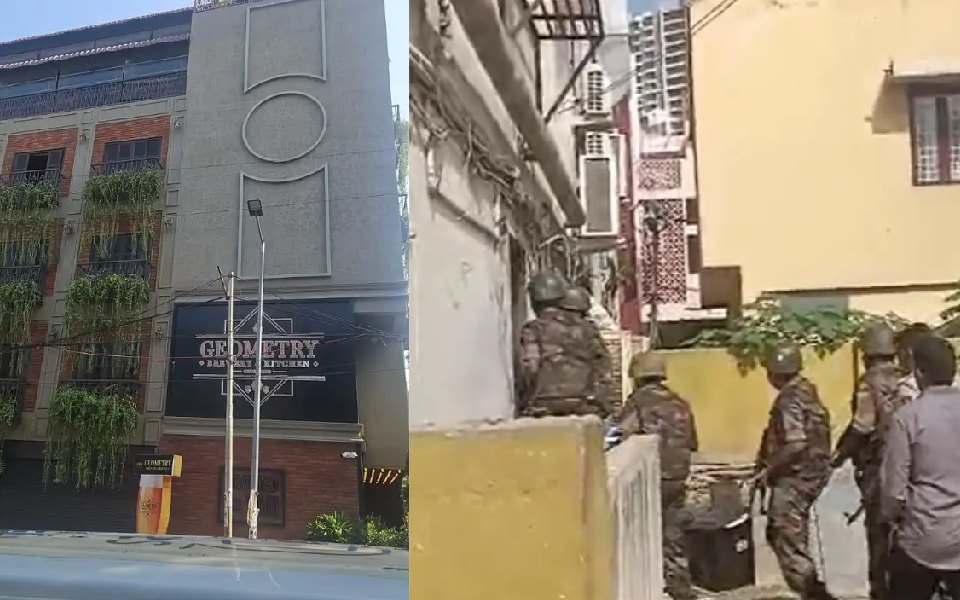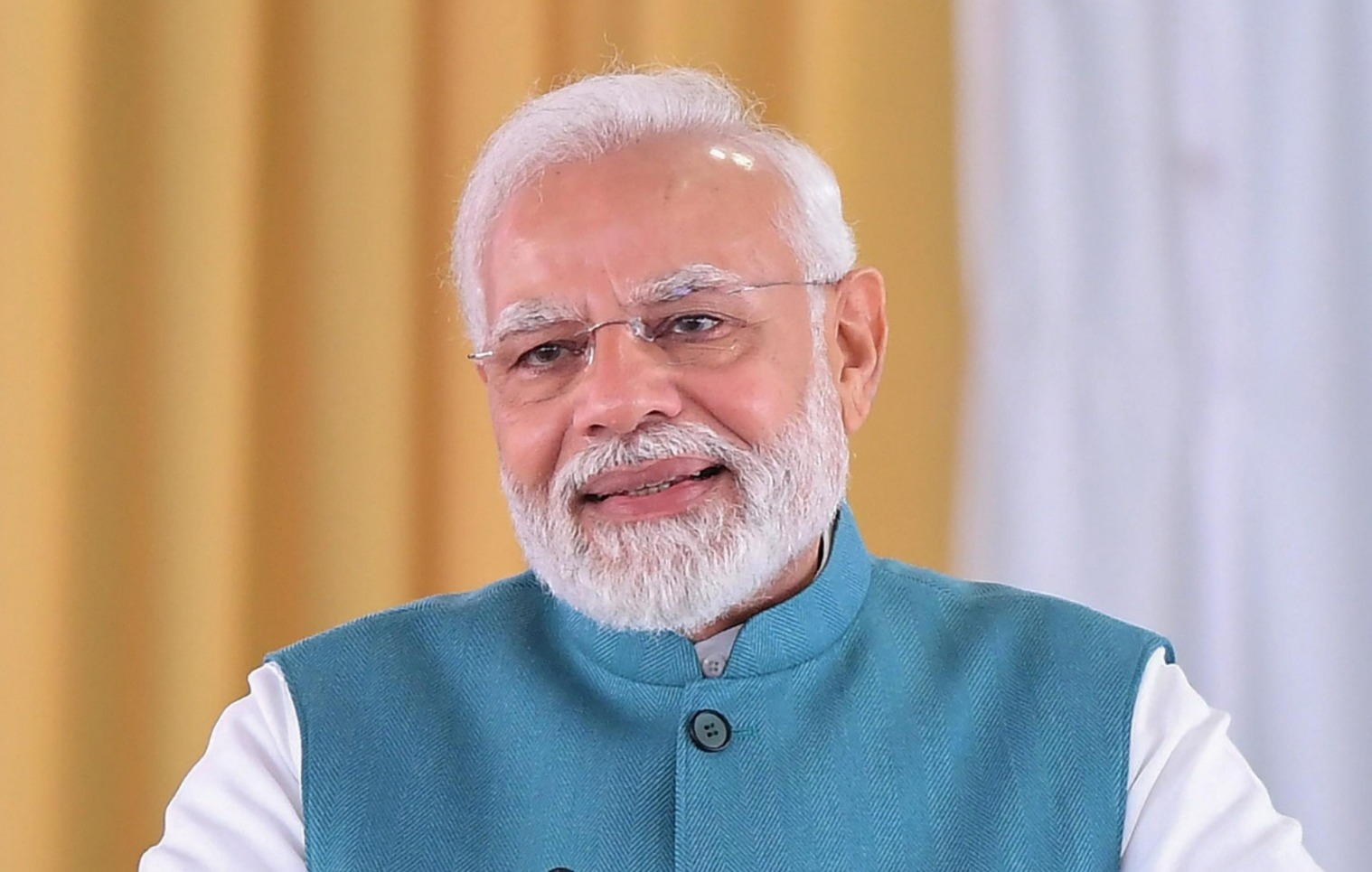New Delhi (PTI): The BJP on Saturday cleaned out the Aam Aadmi Party in Delhi and returned to power in the city after more than 26 years, extending its saffron imprint and dealing a devastating blow to the Arvind Kejriwal-led party whose top leadership crumbled or barely made it.
The BJP won or was leading in 49 of the 70 seats, comfortably over the majority mark of 36, and the AAP was way behind with 21, according to the Election Commission website. Among the giants who bit the dust were former chief minister Kejriwal himself, his trusted aide and deputy chief minister Manish Sisodia as well as Somnath Bharti and Saurabh Bhardwaj.
The Congress, which had ruled for 15 years under Sheila Dikshit, came up nought in the bipolar contest.
“Development, good governance have won; we will leave no stone unturned for Delhi's all-round development,” Prime Minister Narendra Modi said after the results that come in the wake of the BJP’s wins last year in Haryana as well as Maharashtra where it is part of the Mahayuti alliance. With Delhi now in its kitty, the BJP has extended its footprint, the victories helping it put behind some of the reverses of the 2024 Lok Sabha elections.
Coming days after the Union budget which gave crucial tax concessions to the middle class, this election continues the BJP’s winning Lok Sabha streak in Delhi where it won all seven seats. But the premise this time was different.
Ground level issues such as water, drainage and garbage went up against volatile campaigns by both parties with voters grimly evaluating their quality of life in a hopelessly polluted city.
Using ‘AAP-da’, the Hindi term meaning disaster, to tag its rival, the BJP pushed ahead and made ‘sheesh mahal’ an oft recalled buzzword for the lavish chief minister’s residence following the renovations by Kejriwal and allegations of corruption in the excise policy. It clearly hit home.
The people of Delhi have dismantled the "sheesh mahal" of lies, deceit and corruption and made the city "AAP-da free", said Union Home Minister Amit Shah.
The AAP, which saw its leaders Kejriwal and Sisodia jailed in the excise policy case, countered the BJP campaign with vigour to say Yamuna waters were poisoned and that it was just not being allowed to govern because every move was being stymied by the lieutenant governor. It didn’t find the resonance it had hoped for.
“We fought a good election… We will play role of constructive opposition but will also be available to people of Delhi,” Kejriwal said as he conceded defeat in an election he had hoped would make him chief minister for a fourth time and propel him as a national leader.
For the AAP national convenor, the face of the party borne of an anti-corruption movement in 2013, it was a tantalising seesaw ending in despair. As the morning progressed, Kejriwal was trailing, then leading and then trailing again. And at end of day came the verdict - he had lost by 4,089 votes to BJP’s Parvesh Sahib Singh Verma, son of former Delhi chief minister Sahib Singh Verma.
Congress’ Sandeep Dikshit, son of three-time chief minister Sheila Dikshit, was a far third with only 4,568 votes.
As one more line was added to the Congress’ epitaph, the AAP struggled with its own existential crisis. A loss in Delhi, which it ruled for 10 successive years from 2015, signals an end to its national ambitions with now only Punjab in its pocket.
Chief Minister Atishi, who took over after Kejriwal stepped down when he was jailed, was the face saver of sorts, winning Kalkaji with a margin of 3,521 votes against the BJP’s Ramesh Bidhuri.
“I have won my seat but this is not a time for celebration -- this is the time to fight. The battle against BJP's authoritarianism will continue,” she said.
It was a dramatic downslide for the party, which won 67 of the 70 seats in 2015 when it established its dominance by wiping out both the Congress and the BJP, 62 in 2020 and could end up with less than half of that. The promise of mohalla clinics, model schools, free water and electricity seemed to have lost their sheen.
The Congress headquarters were desolate and workers at the AAP office shell-shocked, their leaders huddled in conference as they pondered the future.
At BJP offices, however, there were drumbeats of victory and euphoria, party workers waving flags, holding lotus cutouts, dancing and smearing colours of celebration on each other. And Modi was the mantra.
One man had come all the way from Ujjain. “I came here for the Bharatiya Janata Party, and I stand here in the name of Narendra Modi.”
It didn’t matter who the chief minister would be.
“Who will be chief minister will be decided by the central leadership,” said Parvesh Verma, dubbed giant killer for defeating Kejriwal in New Delhi.
BJP’s Delhi president Virendra Sacheva echoed him. “The next Delhi chief minister will be from the BJP but the central leadership will decide on who it will be.”
According to Sachdeva, BJP candidates had worked diligently and Delhi’s voters had chosen development and a corruption-free governance model. "The people have picked Prime Minister Narendra Modi's leadership because they wanted a model of development.”
Asserting that the BJP would form a “double-engine government” in Delhi, he said, “We have no hesitation in saying that this win is a result of PM Modi’s vision. We will ensure that Delhi gets a strong and stable government.”
Taking a dig at Kejriwal and his party, he said the BJP fought the elections on real issues affecting Delhiites such as broken roads, liquor policy controversies, dirty water and corruption.
“Delhi’s pain is real, and the people have voted to end it by choosing PM Modi’s leadership,” Sachdeva said.
The BJP had 45.7 per cent of the vote share, the AAP 43.7 and the Congress 6.3. And as political analysts debated the future of the opposition INDIA bloc and the benefits of joining hands to combat a resurgent BJP, National Conference leader Omar Abdullah said in a caustic post on X, "Aur lado aapas mein!!! (Keep on fighting each other)."
"It would have been better had the ties between the AAP and the Congress been good. Both parties fought against the BJP separately. Had they contested jointly, the BJP's defeat would have been certain. We should take lessons from this," added Shiv Sena (UBT) MP Sanjay Raut.
Let the Truth be known. If you read VB and like VB, please be a VB Supporter and Help us deliver the Truth to one and all.
New Delhi, May 12 (PTI): Dalal Street investors became richer by Rs 16.15 lakh crore on Monday as markets skyrocketing nearly 4 per cent, after India and Pakistan announced reaching an understanding to stop all firings and military actions on land, air and sea.
Also, a trade agreement between the US and China added to the markets' optimism.
After starting the trade on an optimistic note, the 30-share BSE benchmark gauge Sensex further jumped 2,975.43 points or 3.74 per cent to settle at 82,429.90. During the day, it rallied 3,041.5 points or 3.82 per cent to a high of 82,495.97.

The market capitalisation of BSE-listed firms jumped by Rs 16,15,275.19 crore to Rs 4,32,56,125.65 crore (USD 5.05 trillion) in a single day.
"Confluence of positive geopolitical and economic developments — the ceasefire between India and Pakistan, coupled with a breakthrough trade agreement between the US and China — sparked the strongest daily market rally in recent times," Vinod Nair, Head of Research at Geojit Investments Limited, said.
From the Sensex firms, Infosys jumped 7.91 per cent. HCL Tech, Tata Steel, Eternal, Tech Mahindra, Tata Consultancy Services, Axis Bank, ICICI Bank, Bajaj Finance, NTPC and Reliance Industries were the other major gainers.
Sun Pharma and IndusInd Bank were the only laggards from the blue-chip pack.
"Markets staged a sharp rebound on Monday, buoyed by easing geopolitical tensions after the India-Pakistan ceasefire. Benchmark indices posted their strongest single-day performance in over four years," Vikram Kasat, Head - Advisory at PL Capital, said.
The BSE smallcap gauge surged 4.18 per cent and midcap index jumped 3.85 per cent.
"Markets opened the week on a strong footing, rallying nearly 4 per cent, driven by supportive global and domestic cues. The key trigger was the announcement of a ceasefire between India and Pakistan over the weekend, signalling easing geopolitical tensions. Adding to the positive sentiment were encouraging updates on the US-China trade deal, which further boosted investor confidence as the session progressed," Ajit Mishra – SVP, Research at Religare Broking Ltd, said.
All sectoral indices ended higher. IT zoomed 6.75 per cent, BSE Focused IT (6.74 per cent), realty (5.87 per cent), metal (5.24 per cent), teck (5.21 per cent), utilities (5.07 per cent), power (4.82 per cent) and industrials (4.24 per cent).
"Indian equities made spectacular gains on Monday, with the Nifty soaring by a record 917 points to close at 24,925 - a seven-month high. The de-escalation in India-Pakistan tensions over the weekend has significantly helped calm investors' nerves and improve sentiments.
"On the global front, the US announced a headway in the trade negotiations with China, as both countries agreed to drastically roll back tariffs on each other's goods for an initial 90-day period," Siddhartha Khemka, Head - Research, Wealth Management at Motilal Oswal Financial Services Ltd, said.
As many as 3,545 stocks advanced while 576 declined and 133 remained unchanged on the BSE.

